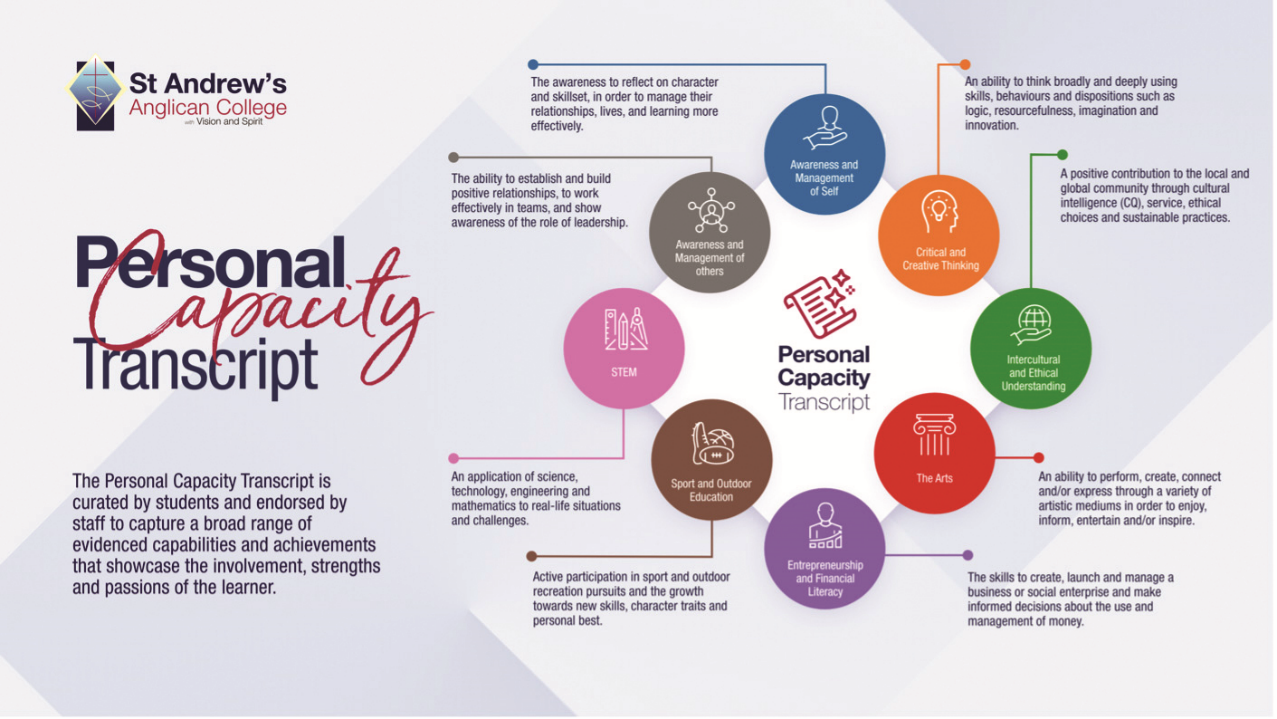
Sunshine Coast school, St Andrew’s Anglican College, is pioneering a new standard in global education, redefining what it truly means to be successful at school.
Drawing from global research trends in the future of education and how this, in turn, affects jobs of the future for students, St Andrew’s Anglican College has launched a ground-breaking initiative – the creation of a personal capacity transcript for secondary students, which gives a documented holistic view of each students learning and achievements.
This initiative has drawn attention from around the world as a forward-thinking solution to recognise and celebrate student learning. It aims to support the thinking shared by a growing number of leading educators, universities, employees, parents and even students, that a ‘grades only’ view of school achievement doesn't tell the whole story.

Led by Mr Tim Barrett, the College’s Head of SAIL (St Andrew’s Institute of Learning), the first Personal Capacity Transcripts (PCT) were released this year alongside secondary students’ Academic Transcript to show a complete picture of their learning and growth. The PCT captures a broad range of evidenced capabilities and achievements that showcase the involvement, passion and strengths of Secondary students.
“We believe that we must broaden our understanding of what success means, especially in our rapidly changing world, and look to new metrics that highlight and celebrate varied student achievements,” Mr Barrett said.
“Being successful at school also includes building character, learning how to interact with others, having the skills to learn and relearn, being creative, and having the resilience to face tough challenges.
“We recognise that each of our students is unique, and their involvement and achievement in activities outside of the traditional success metrics are valuable and should be celebrated.”
St Andrew’s puts all these capabilities under the umbrella of Personal Capacity, which is the central pillar of the College’s learning framework.
Each PCT is unique, reflecting the student's personal journey through the academic year and is a ‘living document’ that can be viewed on the student and Parent Portal and printed off at any time as needed. It showcases a learner's statement, credits earned from eight categories, and the specific achievements they choose to link to a QR code. The transcript will reset annually (except for Years 11 and 12, which span two years) to allow students to set and reflect on goals for different credit outcomes.
Students take an active role and responsibility in working towards and applying for credits to fill their PCT and are supported by their mentor teachers and multiple staff members.
“By focusing on academic performance and personal capacity, we can better prepare our students for the diverse challenges and opportunities they will face in their futures,” Mr Barrett said.
“In doing so, we elevate the definition of success and acknowledge that each student's school journey is unique and valuable.”
St Andrew’s is already engaged with regional school sectors and several individual schools to see how the PCT might be adopted and contextualised in schools around the country.
This story originally appeared as a press release from St Andrew’s Anglican College and has been republished with permission.


